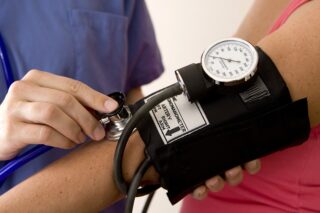
Although atrial fibrillation is the most common type of arrhythmia, it can affect men and women in very different ways. This is true of all forms of heart disease, which may be why women are more likely than men to develop complications from AFib and other heart conditions. In fact, heart disease is the leading cause of death in both men and women in this country, even though it’s commonly seen as men’s problem. Since many women don’t exhibit the same aggressive symptoms that men do, they can easily ignore signs of a serious AFib problem. They’re often diagnosed later in life, which can mean years of heart damage before women seek treatment.
Women’s AFib Symptoms
While the commonly held view of heart problems is a man clutching his chest in pain, AFib is more subtle than that. Anyone can exhibit any number of symptoms, but women are much more likely to display less dramatic symptoms of heart problems, such as:
- Heart palpitations
- Shortness of breath
- Fatigue
- Dizziness
- Chest discomfort
A study by the American College of Cardiology showed that women are at a much greater risk of stroke because of AFib and are more likely to experience all of these symptoms.
AFib Treatment for Men vs. Women
The treatment goal for any atrial fibrillation patient is to reduce the symptoms and minimize the risk of stroke and other complications. The difference in treatment not only stems from date of diagnosis but also patient physiology. While blood thinners are shown to reduce the risk of blood clots, which can cause strokes in AFib patients, women have a greater risk of dangerous bleeding when taking these medications. It can be difficult balancing the two concerns to distribute the right amount of medication for female patients. Also, women are more likely to have lower levels of potassium and magnesium, both of which can cause AFib incidents and arrhythmias.
The best treatment plan for all AFib patients is to live a lifestyle that’s shown to be heart-healthy. Eat a healthy diet including a wide range of vegetables and Omega-3 fatty acids, follow a sensible exercise plan, and follow your doctor’s AFib treatment plan. For women, especially, lifestyle changes can be the key to reducing arrhythmia and living a longer and healthier life.
If you or a loved one are living with a heart rhythm disorder such as atrial fibrillation, contact Heart Rhythm Consultants, P.A. Dr. Dilip Mathew is Board Certified in Cardiology & Cardiac Electrophysiology and has been serving patients in Sarasota and surrounding cities including Venice, Tampa, and Sun City Center for over a decade.



